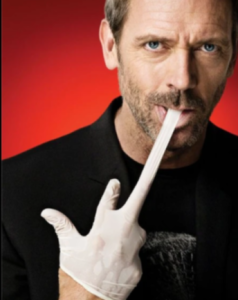Ms. Hain Offers Satire Elective
January 15, 2021
The World According to Satire is an English elective course taught by Ms. Hain, a 20 year veteran of Woodbridge High School’s 3rd floor. In the following transcript, the Barron Perspective speaks with Ms. Hain about the course and what students can expect.
Barron Perspective: Why do you think students should take The World According to Satire?”
Ms. Hain: This class has so much to offer students. It gives students the opportunity to examine history and modern society through various forms of art, literature, and media in a way that no other class does. We look at society, throughout different time periods, with a critical lens and really pick apart what is being criticized in that society. It is a class where we laugh A LOT, where students get to be creative and express their own points of view through their creativity.
BP: Why do you like teaching the course?
MH: I like it because it allows me the opportunity to really get to know the students in the class in a way that no other class I teach does. We also laugh constantly and have the most interesting and thoughtful discussions when we examine different pieces of satire.
BP: What do you think students will get out of learning the elements of satire?
MH: Students will learn how to listen to different points of view and then thoughtfully respond to one another, whether they agree or not. It also truly teaches students to look at the world thoughtfully and critically and to develop their own thoughts and ideas about society.
BP: What makes satire interesting to you?
MH: I love the idea of not merely being part of society, but really examining it through different forms of expression, sometimes humorous and other times, really biting and critical. I think it is important to be mindful and to learn that one can be critical with a purpose.
BP: Why do you think satire is important?
MH: Satire creates critical thinking and the art of communicating a point of view in a way that is different from simple argument. Understanding satire requires a higher order of thinking that many of us do without realizing it. When we watch shows like SNL, The Daily Show, or The Family Guy we are analyzing satire without knowing it. We hear social and political criticisms and we laugh, or we become intrigued and dig deeper into a topic. But, most important, it creates a thought process where we start to consider different points of view and determine for ourselves what we think about a given topic. My satire class does the same thing, only it doesn’t primarily focus on these popular forms of satire. Instead, it uses various forms of satire to do what we do on a daily basis without necessarily realizing it.


















